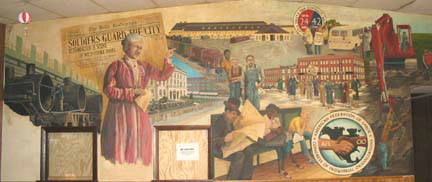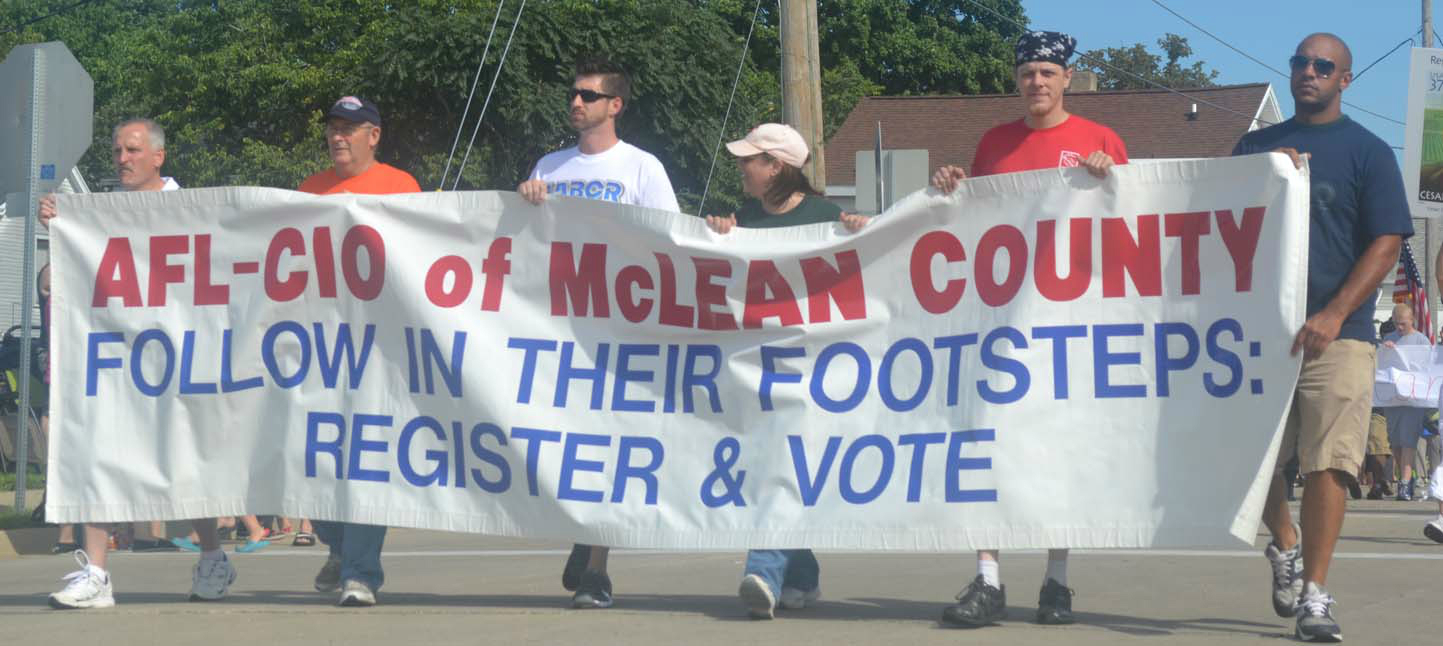|
A vigilant member with strong union backing resulted in a $910,583.79 Illinois Department of Labor (IDOL) prevailing wage violation against Global Wind Services U.S. (GWS) of Chicago. One of the largest settlements in IDOL history. 157 workers received checks for wages due.
GWS imported workers from multiple states in 2020 for grouting, power washing, cleaning and traffic control on a wind farm project between Lexington and Chenoa, Illinois. The project received tax credits and thus was under Illinois prevailing wage law.
Laborers Local 362 field representative Tony Sipes was first alerted when he found traffic control flaggers sitting in cars along U.S. 24. They had no flagger certifications and said they were paid $15 an hour. They would leave their vehicles when a truck appeared carrying wind towers or blades. This alerted the local about a non-union workforce on the job.
Eventually Local 362 was able to get a few members on the job.
“There were so many people we couldn’t identify – twice as many people as they needed,” said 362’s Ron Paul, currently the local’s business manager, then secretary-treasurer. Eric Penn was business manager during this period. “They were non-union grouters, iron workers, a mixture of everything that was non-union -- a lot of people up from Texas. There was no organization on the job site. Everybody just jumped in and did whatever needed to be done.”
Robert Howard was a 362 member dispatched to the job as union steward, a position he took seriously. He carefully monitored the job for health and safety violations, talking to non-union workers about their wages and tracking job site problems.
Howard took photos of the daily sign-in sheet. This was critical for IDOL’s later investigation, identifying the workers who were then interviewed about their job conditions, wages and hours.
At first Howard was only working two hours daily. He stayed near the job site and watched what was going on.
“I had binoculars in my truck. Leonard Thomas and I would sit in my vehicle and record them,” Howard said. He noted most of the workers were Spanish-speaking with little English skills, being paid on credit cards. “We told the Mexican guys what they should be paid. It was the worst job I had ever been on.”
A tower section was suspended from a crane and workers were beneath it pressure washing. Howard told the company that was a hazard and safety violation. The company claimed because the load was hanging it was safe. “I threatened to call OSHA and immigration and I got them to back off,” he said.
“We had our hands full, that was a battle. I burned my gas and tracked everything and made sure I was the last one to leave every night.”
Howard credits his local union officers for their vigilance and back-up. “Ronnie Paul and Tony Spies – any time I had a problem they were right there. They fired me out there and Tony Sipes had to come out. Ronnie made them do what they were supposed to do.”
Once the data was collected by Local 362, the Midwest Region for Fair Contracting compiled the violations and submitted the paperwork to the Illinois Department of Labor. Of the 157 checks issued for wages due, 69 went to Illinois workers, 44 to Texas, 12 to Nebraska, five to Iowa, three to New Mexico, Oklahoma and Indiana, Two to Florida, Missouri and Virginia, and one wage check each to California, Colorado, Kansas, Louisiana, Minnesota, New Jersey, North Dakota, Pennsylvania, South Carolina, South Dakota, Wisconsin and another to an “unknown” destination.
Sipes noted that “It felt good that we were able to ID those people and it cost the company the money it did. It sent a message to the next guys from Texas to do their homework before they come here. It was a good win for us and made things an even playing field for the other developers in the area.”
Howard received thank you calls. “I got two guys that got in touch with me that got their money. They called me and thanked me for everybody on that job. We put pressure on them and everybody got paid right.”
Paul credits politics and a friendly administration in Springfield under Governor J.B. Pritzker for the settlement. “It was a good win for us; we spent a lot of time up there meeting with the contractor and with the members. A lot of members didn’t understand why they were working with non-union people. They got frustrated that nothing was getting done. I thank the guys for sticking it out. We would have been without a workforce out there to see what was going on. It was very rewarding to tell them what happened with the settlement; we trusted the process and thank goodness for a friendly Governor who pushed this through.”
|



